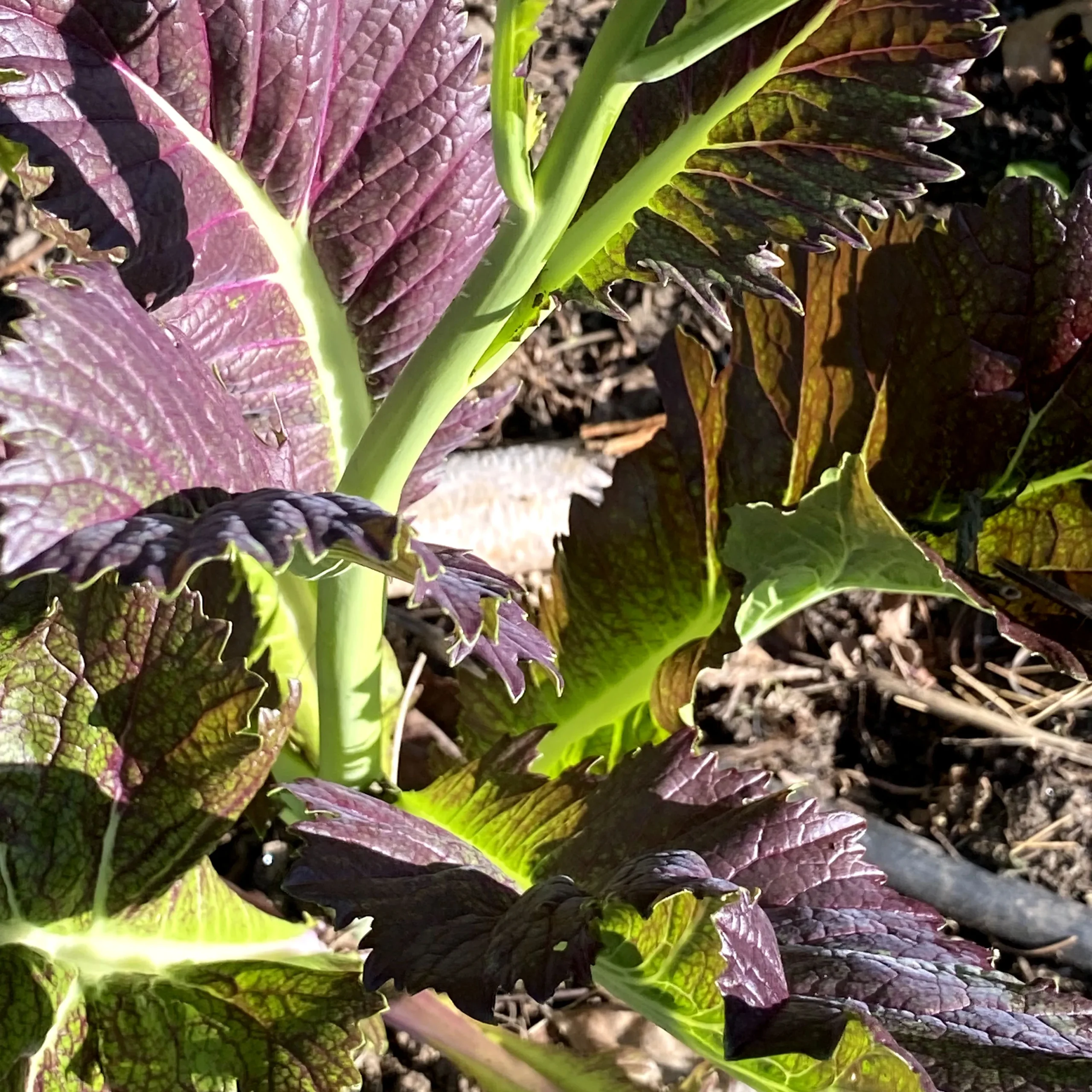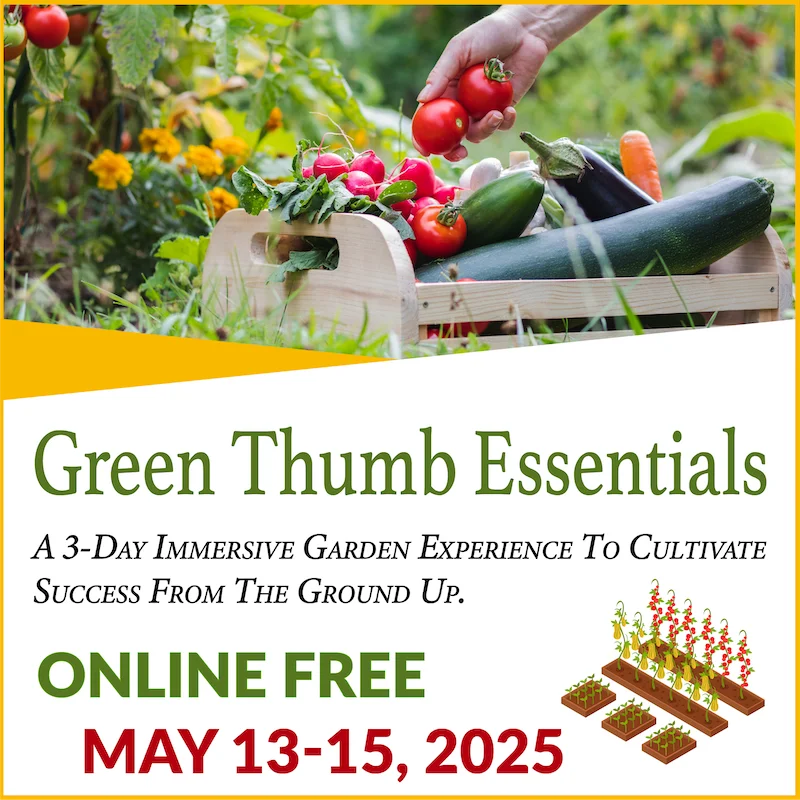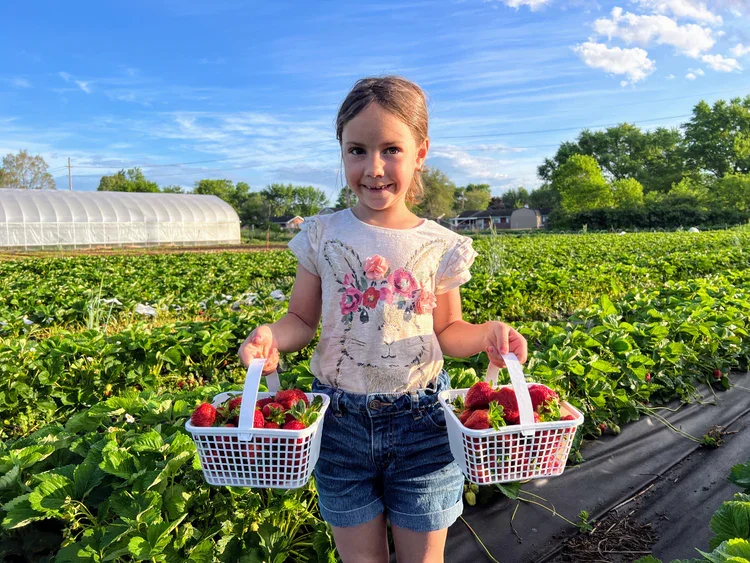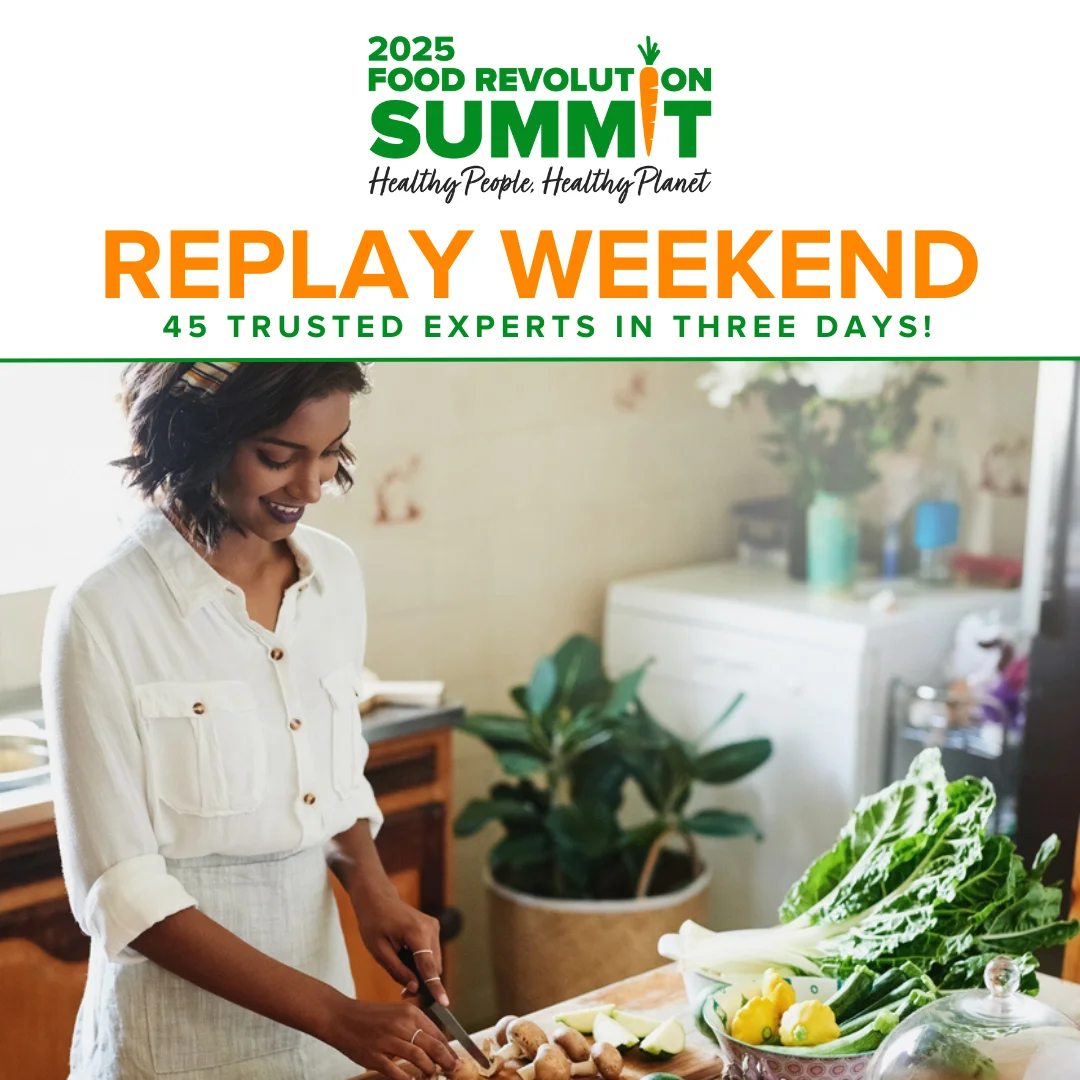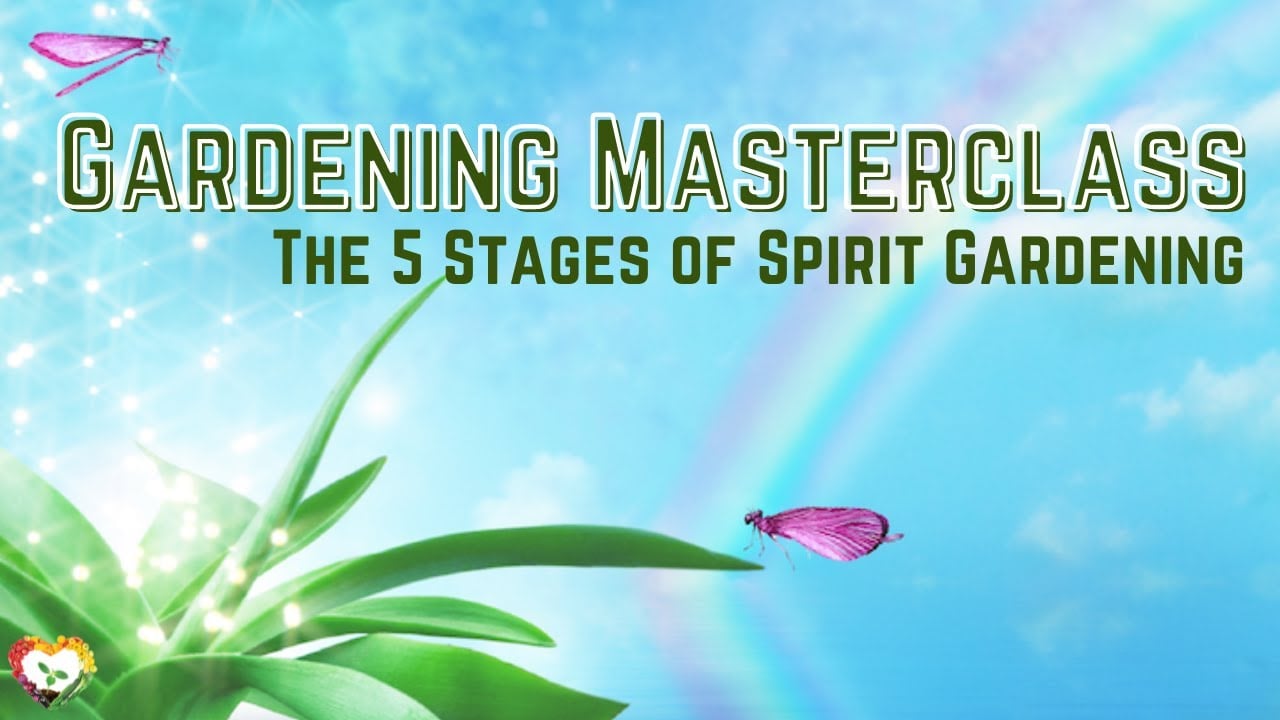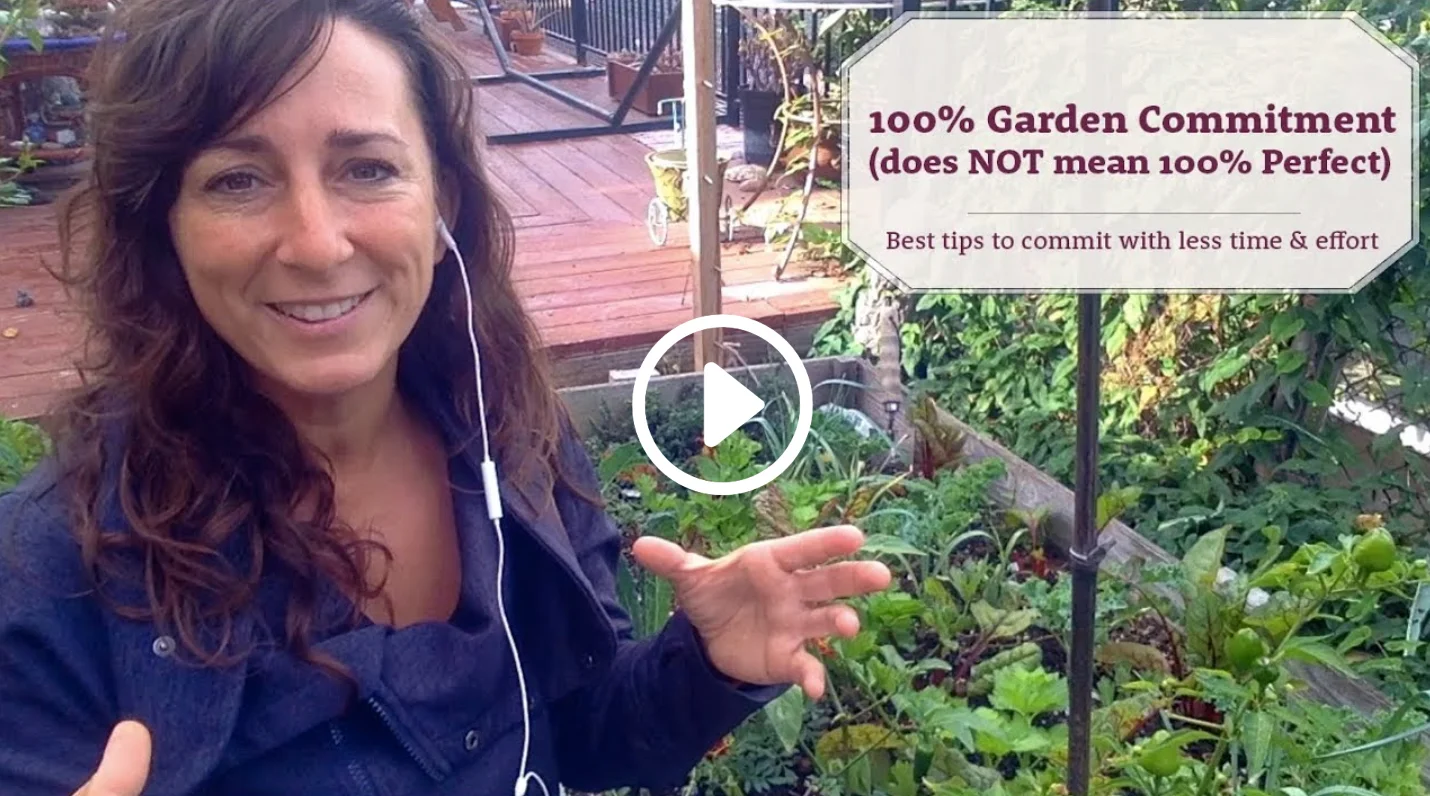Home Gardener’s
Weekly
Issue
No. 123
May
02, 2025
New to gardening and not sure where to start?
The Green Thumb Essentials is a free 3-day online event designed to help beginner gardeners grow fresh, healthy food—no big yard or experience needed!
In just a few short sessions, you’ll learn:
🌱 Simple steps to start your first garden
🌱 How to grow in small spaces
🌱 Budget-friendly setup tips
🌱 What to plant first (and why)
🌱 Time-saving strategies that fit your lifestyle
You’ll walk away with real tips you can put into action right away—plus the confidence to get growing, no matter where you’re starting from.
Whether you’re aiming to eat healthier, save money, or feel more confident growing food, this is the perfect place to begin.
Do you have a few spaces left in your garden that you’re looking to fill? Or a few unused containers sitting on your porch?
Let’s fill those empty spaces with delicious, home-grown food!
Our friends over at Farm on Central provide plants and cuttings to gardeners across the country. They are almost sold out of spring plants, but still have limited quantities in select varieties just waiting to be planted in your garden and produce a bountiful harvest.
Selling Out Soon: Spring Plants & Cuttings
🌱 Strawberries: Plant strawberries this spring to harvest next year! Try Jewel for large, deep-red berries or Mara des Bois for a French cultivar with a wild strawberry tang. Sparkle is another popular variety, best if you are looking for a late bloomer or live in a cold growing zone.
🌱 Brambles: Only two raspberry varieties left: Heritage and Prelude. Prelude is the earliest-ripening summer raspberry variety, while Heritage {link} is Farm on Central’s favorite raspberry. There are a few blackberries left too, so get them while they last.
🌱 Seed Potatoes: From fingerlings to golds, there is a potato for everyone. Not a fan of russets? Try red potatoes. Or not a fan of reds? You might like the fingerling sampler {link}.
🌱 Elderberry Cuttings: For northern gardeners, try the Bob Gordon or Adams varieties. If you’re in a warmer growing zone, consider Ranch or Pocahontas. Elderberries are semi self-fertile, but produce more when you plant two varieties.
🌱 Willow Cuttings: Perfect for creating living hedges, erosion barriers, or floral arrangements! Pussy willows flower in the spring and produce soft catkins that add a unique touch to any arrangement. Select varieties are still available, but cuttings will stop shipping soon, so get your order in now.
🌱 Canna Lilies: Did you know canna lily rhizomes are edible? These striking flowers not only bring a splash of tropical color to your garden, but also hide an emergency cache of food underneath—sometimes up to 40 lbs per plant.
Spring’s planting window is still open—but not for long! Now’s the perfect time to get your plants in the ground and set them up for a strong, healthy start before the summer sun kicks in.
Food Revolution Summit Docuseries
Binge-Watch this Weekend
Are you tired of trying to figure out what’s truly healthy—only to find conflicting advice everywhere you look? One day, a food is a “superfood,” and the next, it’s labeled harmful. In a world full of wellness hype, social media influencers, and corporate-driven misinformation, it can be hard to know what (or who) to trust.
That’s why this weekend’s free event is so important. The 2025 Food Revolution Summit Docuseries: Healthy People, Healthy Planet brings together some of the most respected voices in health—including New York Times best-selling authors, holistic doctors, and renowned nutritionists—to share the truth about what really supports health, energy, and longevity. And for three days only, you can stream all eight episodes completely free.
Here’s what you’ll discover in the series:
— Episode 1: Embracing Vitality At Every Stage of Life — Unlocking the Secrets to Thriving Across the Decades
— Episode 2: Boosting Brain Health — The Science of Sharpening Your Mind and Protecting Your Memory
— Episode 3: Nurturing a Thriving Microbiome — The Hidden Key to Immunity, Mood, and Longevity
— Episode 4: Conquering Heart Disease — Transforming Cardiovascular Health with Science and Action
— Episode 5: Cancer: Shattering Myths, Empowering Hope — The Lifestyle Strategies That Change Everything
— Episode 6: Fit Over 40 — Building Strength, Vitality, and Flexibility for Life
— Episode 7: Nutrition: Facts, Fads, and Essential Nutrients — Mastering Your Nutritional Needs
— Episode 8: From Farm to Fork — Where Your Food Comes From and Why It Matters a Lot
Stream the docuseries for free and cut through the confusion with real, science-backed guidance from the best in the field.

Gardening is incredibly rewarding—but let’s be honest, it’s not always easy. Between unexpected challenges, frustrating setbacks, and moments of doubt, even the most passionate gardeners can hit a wall.
That’s why we created the Spirit Gardening Masterclass, a powerful and uplifting guide to help you reconnect with the deeper purpose of your garden—and your life. In this inspiring session, Garden Instructor Stacey Murphy walks you through the 5 Stages of Spirit Gardening, a transformational process that shifts your mindset, renews your energy, and helps you fall in love with gardening all over again.
You’ll learn how to:
🌱 Break through boredom and stagnation
🌱 Move past worry and frustration
🌱 Reclaim your sense of childlike wonder
🌱 Align your inner growth with your garden’s cycles
🌱 And cultivate the kind of vitality that nourishes your body, mind, and soul
Whether you’re a new or seasoned gardener, this Masterclass will help you bring more purpose, peace, and joy to your garden journey.
Watch now and see how Spirit Gardening can transform not just your harvest—but your whole outlook.
🥕 BLOG 🥕
100% Garden commitment doesn’t mean 100% Perfect!
Ready to commit to your garden? Well, there’s no “right” way to be committed. This blog will help you find your perfect level of involvement, whether that’s a laid-back approach or a full-on gardening obsession. Learn how to streamline your efforts, embrace imperfection, and reap the rewards of your garden—without stressing over every detail!
What: Green Thumb Essentials
Who: Grow Your Own Vegetables
When: May 13-15, 2025
Green Thumb Essentials is a 3-day online event crafted for fresh food lovers and aspiring gardeners ready to dig in—no matter their space or experience level. You’ll uncover surprising places to grow food, learn how to garden on a budget, and choose crops that thrive in your unique climate. From understanding sunlight and soil health to tracking your harvests and managing your time, this event equips you with the practical tools and expert insights to grow more food with confidence. Whether you’re just planting your first seeds or looking to level up your garden game, Green Thumb Essentials will help you root your journey in success.
Worried about children’s mental health and the risks of conventional treatments? Long-term use of certain medications can lead to serious side effects—like dependence, organ damage, and even increased suicide risk. But many parents don’t know there are natural, science-backed alternatives that can help children thrive.
That’s why our friends at Zonia created Young & Thriving—a powerful online event featuring 43 top experts in functional medicine and children’s mental health.
What you’ll discover inside this event:
🌿 Hidden stressors wrecking your child’s mental health
🌿 Why anxiety, depression & ADHD rates are rising
🌿 How to rewire your child’s nervous system for resilience
🌿 What to stop feeding your child—and what to feed instead
🌿 The gut–mood connection and how to heal it
🌿 Simple tools to help kids self-regulate and thrive
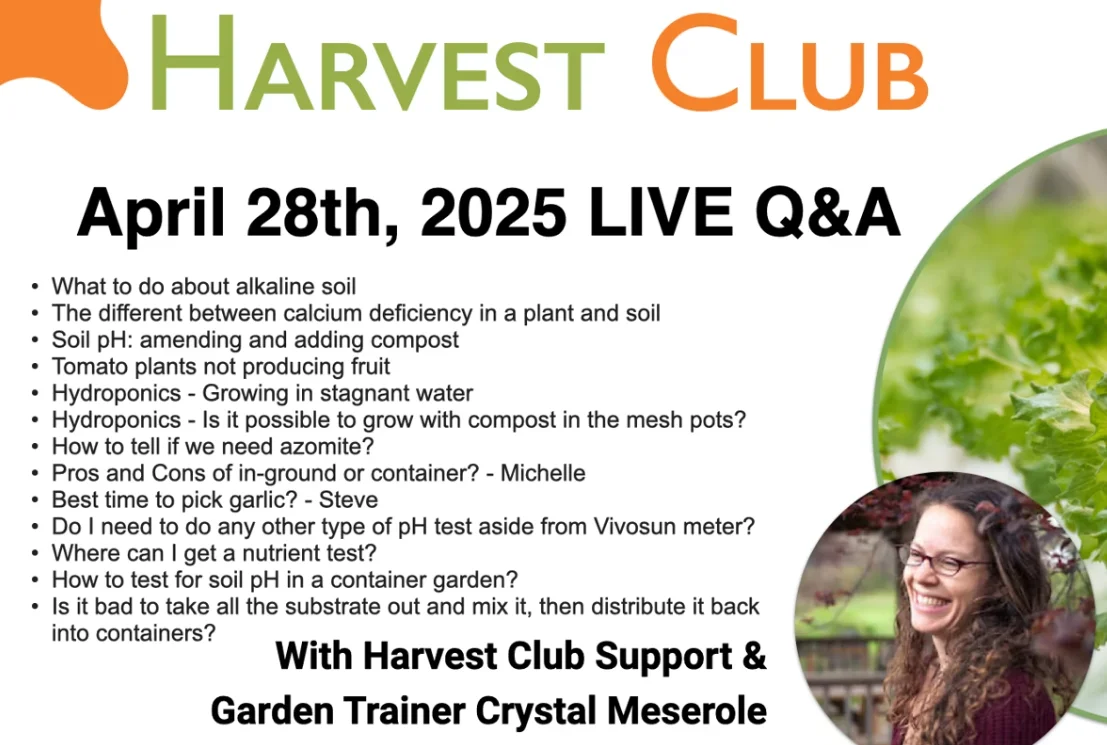
WHAT’S HAPPENING IN HARVEST CLUB
Get your questions answered and keep moving forward on your fresh food goals in Harvest Club! 🍅🥕🌽🫐🍆🌱
Not a member of our garden membership Harvest Club? You can get a one-time complimentary two-month membership with any of our courses. Harvest Club has tons of resources to help you thrive. Plus, you get access to ongoing garden support through email. Learn more here.
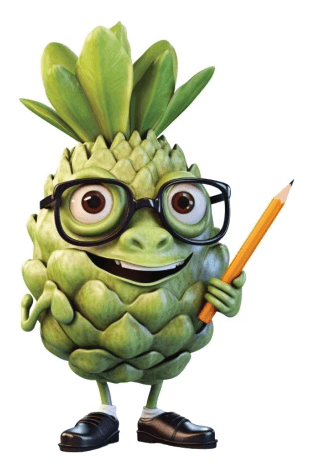
Dear Arti:
Question: I love kale and it grows well in my garden, but I am always fighting spider nests, worms and insect eggs. How do I remedy this problem? – Rosa B., Ontario
Answer: Hi Rosa,
So glad you reached out!
Native worms and regular spiders act as beneficials in the garden. However, if you’re having to deal with all that on your leaves, it will make harvesting much easier and more enjoyable if you discourage them from that area and take care of the insect eggs as well.
The first thing you can do is start scuffing the top few inches of soil once or twice a week in the area you’ll be planting your kale. This is actually a good idea to do over the entire garden, but especially the areas where you’re having trouble.
Also, be sure 30% of your garden is perennial herbs and flowers. There are many edible flowers you can plant too so you don’t have to lose out on harvesting amounts. These plants bring in beneficials and help keep pest levels down.
You can also add at least one generalist predator beneficial (like lacewings) and beneficial nematodes to your soil.
These beneficials prey on eggs, larva, and pupae in the soil and can help reduce your pest populations.
Those are the top three things you can do to get more support from nature and have her do the work for you!
I hope that helps, Rosa!
—————————————————————————————
Question: How do I get rid of voles/moles – with no pesticides or other things that will hurt people. – Kathryn P.
Answer: Hi Kathryn,
Great question!
Just in case anyone reading this doesn’t know, moles are actually a beneficial in almost all cases. Usually when we see ground damage we blame moles, but usually it’s voles or other burrowing animals.
Moles usually live individually, so you’ll almost always just see one. It is rare to find a gathering of more than one or two moles.
Moles are insectivores, so they don’t damage plants. Occasionally a plant will be toppled by accident, but the benefit they provide can be worth the few plants that get toppled, as moles eat grubs and other pests that burrow deeper into the soil than we can get to.
Voles are a different story. Not only do they eat plant matter, but they also carry human diseases, so we definitely don’t want them around our food.
For smaller, more burrowing rodents like voles and mice, you’ll need barriers below and above ground where the holes in the fence are no bigger than dime size. Anything bigger than that and they can squeeze through.
There are many different strategies for this type of fencing. The one that seems to work the best is to get quarter-inch hardware cloth. You want the hardware cloth 2 feet down and 1 foot horizontally. So, if you make an L shape where the bottom of the L heads into the garden, that’s ideal.

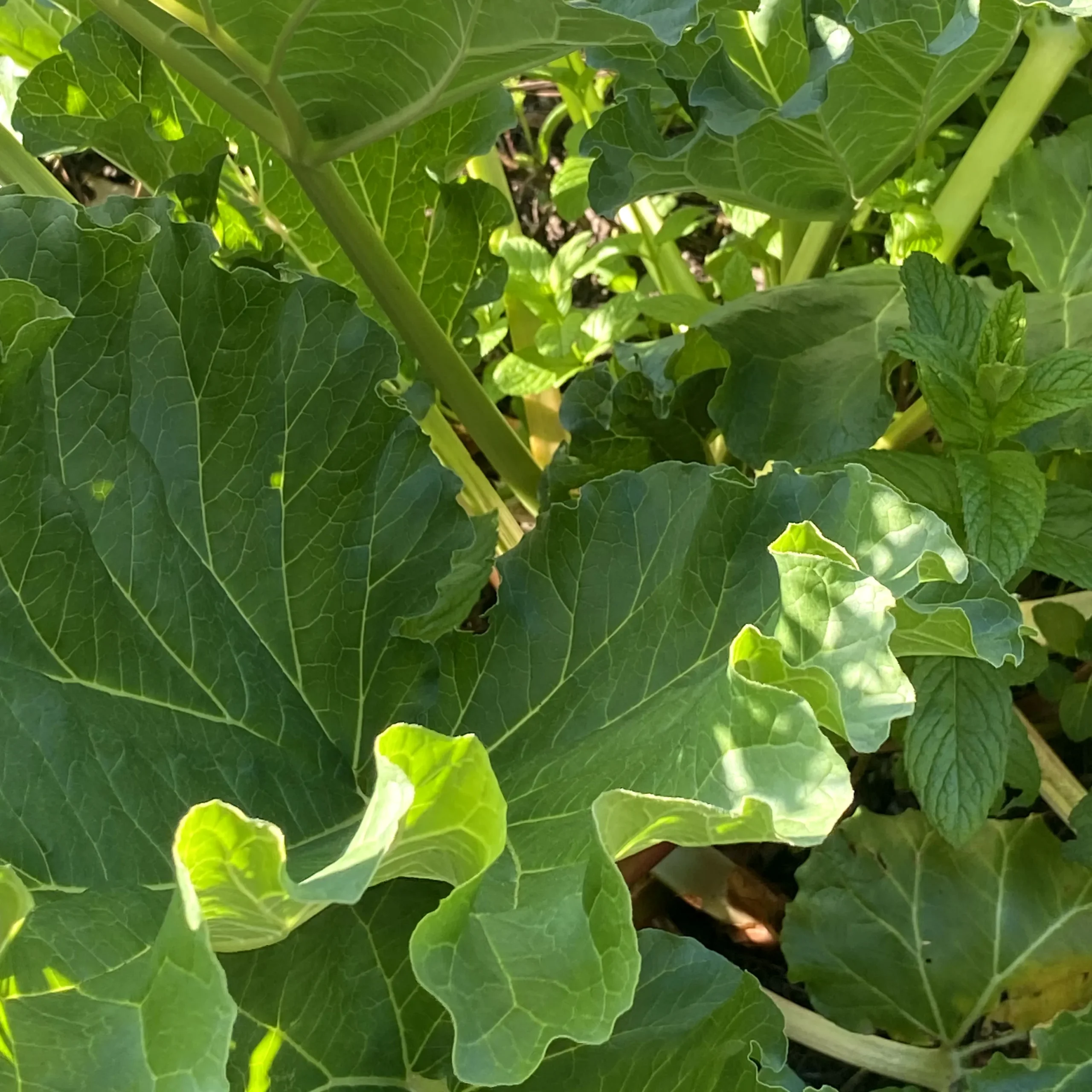
The garden is coming to life for GYOV CEO and Lifestyle Gardener Denise Beins! Flowers are blooming, bees are buzzing, and many plants are returning to their full glory. Pictured here are one of her vibrant rhubarb plants—perfect for sweet and tart recipes—and a thriving mustard green plant.
How do you like to enjoy your mustard greens? Let us know here!
